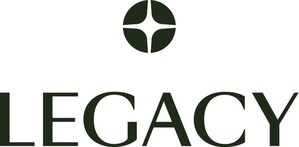Researchers Say Extending Smoke-Free Legislation to Casinos Can Reduce the Acute Effects of Secondhand Smoke Exposure
WASHINGTON, Aug. 5, 2013 /PRNewswire-USNewswire/ -- A new study published today in Circulation, a journal of the American Heart Association, takes a deeper look at the implementation of smoke-free laws in casinos and its impact on reported medical emergencies. Researchers from the University of California, San Francisco compared the number of medical emergencies before and after casinos implemented smoke-free regulations that were meant to protect people from the detrimental effects of secondhand smoke. They found a significant decrease in medical emergencies once those laws were implemented.
(Logo: http://photos.prnewswire.com/prnh/20101101/DC86294LOGO )
Today, only 19 states and Puerto Rico have laws making all state-regulated gambling smoke-free. Since many casinos are still exempted from legislation mandating smoke-free environments, many put their employees and patrons at risk for the acute effects of secondhand smoke exposure. In 2011, 600,000 non-smokers worldwide died from involuntary exposure to secondhand smoke and each year, in the United States, 49,400 people die from secondhand smoke-induced heart disease and lung cancer. The study examines the differences in ambulance calls originating from casinos before and after the casinos were made smoke-free and the results show a decrease in medical emergencies originating from casinos after implementing the smoke-free casino laws as well as a significant drop in medical emergencies from locations other than casinos after initial implementation of the smoke-free law.
"There is strong evidence to suggest that sheer volume of secondhand smoke that people are exposed to in casinos has an immediate and harmful impact on patrons," said lead researcher Dr. Stanton A. Glantz, Professor of Medicine at the University of California, San Francisco and Legacy Distinguished Professor of Tobacco Control.
According to the study, on July 1, 2006, the state of Colorado implemented a state law making all workplaces, restaurants, bars, and public spaces smoke-free with the exception of casinos; the law was later extended to casinos on January 1, 2008. For the study, researchers collected data on the number of ambulance calls that did not originate and did originate from casinos in Gilpin County, Colorado – a rural Colorado county with a large casino presence – for each month from January 2000 through December 2012 by the Gilpin Ambulance Authority. Gilpin County had a total of 26 casinos in March 2013 and during the study period, there were a total of 16,636 ambulance calls in total: 10,105 from casinos, and 6,531 not from casinos.
The study found that:
- After the initial implementation of the smoke-free law (that exempted casinos), there was a significant drop (22.8 percent) in ambulance calls not originating from casinos but no significant change in calls from casinos.
- After the smoke-free law was extended to casinos in 2008, there was a similar significant drop (19.1 percent) in ambulance calls from casinos but no change in calls originating outside casinos.
- In total, there was a reduction of about 180 calls per year from casinos and 175 calls per year from locations other than casinos following implementation of the two laws.
The observation that the magnitudes in reductions in ambulance calls after the implementation of the smoke-free laws were similar for smoke-free casinos as well as other smoke-free venues in general suggests an effect of acute exposure to secondhand smoke, according to the study.
"Casino owners who continue to fight smoke-free laws and continue to allow smoking in their casinos are literally gambling with the lives of their customers and employees. These are policies that can be changed and should be changed in order to save lives," said Glantz.
By applying smoke-free laws to casinos, states would reduce costs, the study suggests. While the economic aspect may serve as an incentive for passing smoke-free casino laws, research shows there is no risk-free level of exposure to tobacco smoke. Smoke-free laws can help prevent some 49,400 deaths that happen in the U.S. each year from second hand smoke related disease.
Learn more about Secondhand Smoke online at http://legacyforhealth.org/content/download/677/7819/version/5/file/Fact+Sheet-secondhandsmoke+5+21+13.pdf.
Legacy helps people live longer, healthier lives by building a world where young people reject tobacco and anyone can quit. Legacy's proven-effective and nationally recognized public education programs include truth®, the national youth smoking prevention campaign that has been cited as contributing to significant declines in youth smoking; EX®, an innovative public health program designed to speak to smokers in their own language and change the way they approach quitting; and research initiatives exploring the causes, consequences and approaches to reducing tobacco use. Located in Washington, D.C., the foundation was created as a result of the November 1998 Master Settlement Agreement (MSA) reached between attorneys general from 46 states, five U.S. territories and the tobacco industry. To learn more about Legacy's life-saving programs, visit www.LegacyForHealth.org.
Follow us on Twitter @legacyforhealth and Facebook www.Facebook.com/Legacy.
SOURCE Legacy
WANT YOUR COMPANY'S NEWS FEATURED ON PRNEWSWIRE.COM?
Newsrooms &
Influencers
Digital Media
Outlets
Journalists
Opted In





Share this article